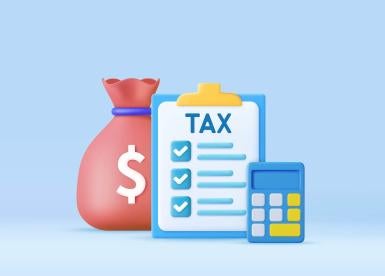On Sept. 6, 2023, the IRS opened the application period for taxpayers interested in participating in the CAP program. (See, IR-2023-164). It will remain open until Oct. 31, 2023. CAP is a “real-time” audit in which the taxpayer and the IRS work cooperatively to conclude the review of the positions to be taken on a tax return, prior to the filing of that return. The CAP process therefore provides a taxpayer with certainty in advance of filing the return, often obviating the need for a financial statement reserve. CAP is an annual program and taxpayers must re-apply each year. This GT Alert provides a brief overview of CAP, eligibility, the application process, and whether and how it should be considered.
Background
CAP was piloted in 2005 as program for taxpayers seeking to work with the IRS to finalize their return positions in advance of filing. In 2011, CAP became permanent, and over the years has had between 140 and 240 participants on an annual basis. Eligible taxpayers must have assets of $10 million or more, be a publicly traded corporation required to file SEC Forms 10-k, 10-Q and 8-K, and must not be under investigation by or in litigation with any government agency that would limit the IRS’s ability to obtain current tax records. CAP is not for everyone, but it can be an excellent option for taxpayers interested in direct and real time engagement with the IRS exam team and in achieving early certainty for their tax return positions. A small number of new participants are accepted each year through the application process.
Eligibility
Taxpayers who are interested in applying to CAP must meet the above-mentioned basic criteria, as well as additional requirements. For 2024, the IRS requires that a taxpayer have only one filed return and one unfiled return open on the first day of the applicant’s CAP year. (An open return is one that has not been closed in examination. There are some limited exceptions to this (i.e., a pending APA or Competent Authority matter; joint committee case pending.) In addition, a taxpayer cannot have more than three tax years open for exam on the first day of the applicant’s CAP year, and the exam team must determine (with the taxpayer’s agreement) that these years will close no later than 12 months after the first day of the applicant’s CAP year. A dedicated focus on closing any open years is critical to acceptance.
CAP taxpayers are expected to exhibit fully transparent and cooperative behavior in their dealings with the IRS and seeks taxpayers with a history of working in an open, transparent, collaborative fashion. Others need not apply.
The Application Process
The application process requires the submission of several forms including the CAP Research Credit Questionnaire, the Material Intercompany Transaction Template, the Taxpayer Initial Issues List, and the Tax Control Framework Questionnaire. Each of these specialty forms focuses on an area of concern for the IRS; R&D, transfer pricing, tax controls, and cross border activities are the most difficult and time-consuming issues for IRS examination teams. A new form, the Cross-Border Activities Questionnaire, will be required next year. Each of these forms provides the IRS with necessary, additional information as it evaluates a Taxpayer’s candidacy for CAP. This selection (or deselection) process happens on an annual basis.
If accepted into CAP, the taxpayer signs a Memorandum of Understanding with the IRS laying out the manner in which the CAP audit will unfold and the governing principles. Taxpayers who enter the program and successfully conclude their CAP exam may be invited into the Bridge Plus phase of CAP. Bridge Plus will provide certainty to eligible taxpayers, based on an expedited review of certain information, in advance of return filing.
Should a company apply?
The decision to apply to CAP is not one to be made lightly. As it is a real-time audit, with an emphasis on speed, transparency, and close dialogue with the examination team, only taxpayers who are willing and able to make this commitment should consider applying. Although there are not many CAP taxpayers, many of these taxpayers have been in the program for years and are pleased with the process and the end-result which is certainty and closure. Other taxpayers have withdrawn from the program, finding it was not a good “fit” for their company and/or tax team.
The early certainty which CAP offers is a welcome and critical conclusion for CFOs and heads of tax, as it allows them to avoid financial reserve issues. Absent CAP, a taxpayer must wait for an audit or for the statute of limitations to expire in order to achieve closure. CAP expedites certainty in a way that nothing else can but also has many complexities. While it should be thoughtfully considered, clients and companies should consult with experienced counsel to help them navigate the ins and outs of this program.




 i
i


